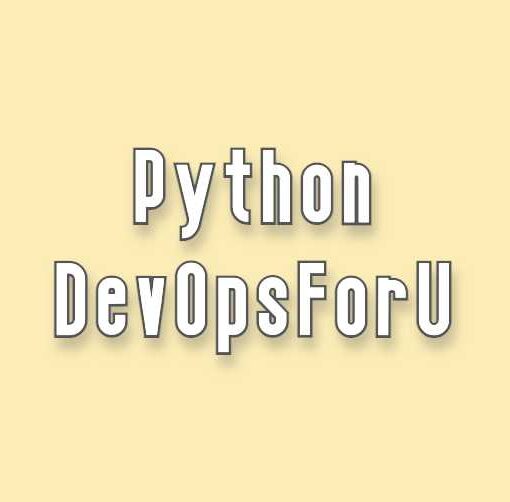
DevOps is a rapidly evolving field that has been transforming the way software is developed and delivered. As technology continues to advance, the future of DevOps looks bright, with new trends and predictions emerging every day. Here are some of the most exciting predictions and trends for DevOps in 2023 and beyond.
1. Increased focus on automation and AI
Automation has been a key driver of DevOps success, and this trend is only set to continue in the future. With the advent of AI and machine learning, DevOps teams will be able to automate even more tasks, freeing up time for more strategic initiatives. This will also enable teams to scale their operations more efficiently, deliver high-quality software faster, and reduce the risk of human error.
2. Emphasis on collaboration and cross-functional teams
As DevOps continues to mature, there will be a greater emphasis on collaboration and cross-functional teams. DevOps teams will need to work closely with other teams, such as security, quality assurance, and product management, to ensure that software is delivered with security, reliability, and scalability in mind. Teams will also need to collaborate on continuous improvement initiatives, leveraging data and insights to drive innovation and increase efficiency.
3. Rise of low-code and no-code platforms
Low-code and no-code platforms will become increasingly popular in the future of DevOps. These platforms will enable developers to create, test, and deploy applications without writing any code, freeing up time for more strategic initiatives. They will also enable teams to accelerate their software development and delivery processes, reducing the time to market for new products and services.
4. Increased focus on security
As software continues to play an increasingly important role in our lives, security will become an even more critical concern in DevOps. DevOps teams will need to collaborate with security teams to ensure that software is developed and delivered with security in mind. This will involve implementing security best practices, such as encryption, access controls, and vulnerability scanning, as well as leveraging security tools and technologies to detect and mitigate security threats.
5. Emergence of edge computing
Edge computing is a new computing paradigm that involves processing data and delivering applications and services closer to the end user. This will become increasingly important in DevOps as companies look to deliver high-quality, low-latency applications and services to users, regardless of their location. DevOps teams will need to be familiar with edge computing technologies, such as containerization, serverless computing, and edge computing platforms, to deliver these new applications and services.
6. Greater emphasis on cloud-native architecture
As organizations continue to embrace cloud computing, the need for cloud-native architecture will become increasingly important in DevOps. Cloud-native architecture is designed to take full advantage of the benefits of cloud computing, such as scalability, availability, and cost-effectiveness. DevOps teams will need to be familiar with cloud-native technologies, such as containers, Kubernetes, and serverless computing, to deliver cloud-native applications and services.
7. Increased focus on observability
Observability is a critical component of DevOps, as it enables teams to monitor and troubleshoot their applications and services in real time. With the rise of microservices and cloud-native architecture, observability will become even more important, as teams will need to be able to understand the behavior and performance of their applications and services at scale. DevOps teams will need to leverage observability tools and technologies, such as logs, metrics, and tracing, to deliver highly observable applications and services.
8. Emergence of DevOps-as-a-Service
DevOps-as-a-Service (DaaS) will become increasingly popular in the future of DevOps. This new model will enable organizations to outsource their DevOps processes to third-party providers, freeing up time for more strategic initiatives. DaaS providers will offer a range of DevOps services, such as software development and delivery, infrastructure management, and security, to help organizations deliver high-quality software faster and more efficiently.
9. Greater focus on diversity and inclusivity
Diversity and inclusivity will become an even more important concern in the future of DevOps. DevOps teams will need to embrace diversity and inclusivity to ensure that their teams reflect the communities they serve and that everyone has an equal opportunity to succeed. This will involve creating inclusive cultures, providing training and resources, and promoting diversity and inclusivity at all levels of the organization.
10. Emergence of quantum computing
Quantum computing is a new computing paradigm that is set to revolutionize the way we solve complex problems. In the future of DevOps, quantum computing will play an increasingly important role, enabling teams to solve complex problems faster and more efficiently. DevOps teams will need to be familiar with quantum computing technologies and techniques, such as quantum algorithms and quantum programming languages, to deliver innovative solutions in a fast-paced and rapidly evolving field.
The future of DevOps is full of exciting trends and predictions, from automation and AI (Specially Chat GPT) to diversity and inclusivity, and from cloud-native architecture to quantum computing. Whether you’re a seasoned DevOps professional or just starting out, there has never been a better time to be a part of this fast-paced and rapidly evolving field. Stay informed, embrace new technologies, and be prepared to adapt and evolve as the future of DevOps unfolds.
You may also like:
This article is created based on experience but If you discover any corrections or enhancements, please write a comment in the comment section or email us at contribute@devopsforu.com. You can also reach out to us from Contact-Us Page.
Follow us on LinkedIn for updates!





One thought on “The Future of DevOps: Predictions and Trends for 2023 and Beyond”